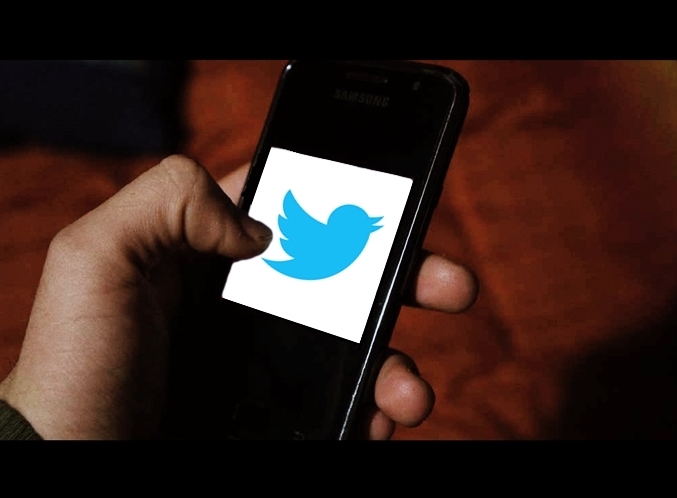Twitter suspends journalists’ accounts over reporting on Musk’s private jet
First posted January 23, 2023 3:29pm EST
Last updated January 23, 2023 3:29pm EST
All Associated Themes:
- Press
- Social Media
External References
Twitter suspends journalists who have been covering Elon Musk and the company, NBC News
Elon Musk threatens legal action, suspends Twitter account that tracks his jet, NBC News
Musk’s suspension of journalists could embolden authoritarians, free speech experts warn, NBC News
Elon Musk reinstates suspended journalists on Twitter after backlash, NPR
Elon Musk reinstates Twitter accounts of suspended journalists, The Guardian

Elon Musk suspended the Twitter accounts of several journalists who reported on @ElonJet, a Twitter account that shared public data about the location of his private jet. Allegedly, the journalists had violated Twitter’s “doxxing” policy.
Key Players
Twitter, an American microblogging and social networking service, had nearly 400 million users worldwide as of 2022. Over the years, the platform has received varying degrees of backlash from all parts of the political spectrum, including accusations of censorship and spreading disinformation.
Elon Musk, a South African American entrepreneur and investor, is the CEO and owner of Twitter, an acquisition he completed in October 2022. He is also the founder and CEO of SpaceX, a space manufacturer, and Tesla, an electric vehicle company. In June 2022, he was considered the wealthiest person in the world, with an estimated net worth of $211 billion.
Jack Sweeney was one of the journalists who had their personal Twitter accounts suspended for creating @ElonJet.
Further Details
The term “doxxing” typically refers to the publishing of private information about individuals with malicious intent.
On Dec. 14, 2022, Twitter suspended @ElonJet, which by then had garnered more than half a million followers, NBC News reported. Twitter also deleted Sweeney’s personal account, as well as accounts that tracked the private planes of Meta CEO Mark Zuckerberg and Amazon founder Jeff Bezos.
“Real-time posting of someone else’s location violates doxxing policy, but delayed posting of locations are ok,” Musk tweeted. Later that evening, Musk said he would seek legal action against Sweeney, claiming a “stalker” had confronted a car carrying Musk’s child the night before.
“Last night, car carrying lil X in LA was followed by crazy stalker (thinking it was me), who later blocked car from moving & climbed onto hood,” Musk wrote, referring to his son X Æ A-XII Musk. “Legal action is being taken against Sweeney & organizations who supported harm to my family.”
Sweeney denied receiving legal notice from Musk, adding that @ElonJet had last tweeted on Dec. 12. “They have their legal standing, and all I’m doing is taking their data and putting it on Twitter,” Sweeney told NBC News. “There’s nothing I’m doing wrong, and I didn’t mean any harm.” Sweeney also said his jet-tracking bot did not tweet data in real time.
Reportedly, Twitter’s policy against sharing nonpublic information was updated on Dec. 14 to include “live” information, making links to “travel routes, actual physical location, or other identifying information that would reveal a person’s location” a violation of its “private information and media policy.”
“When someone shares an individual’s live location on Twitter, there is an increased risk of physical harm. Moving forward, we’ll remove Tweets that share this information, and accounts dedicated to sharing someone else’s live location will be suspended,” Twitter tweeted.
Speaking about @ElonJet a month prior, Musk said he would allow the account to exist even at his own safety and risk, tweeting that his “commitment to free speech extends even to not banning the account following my plane, even though that is a direct personal safety risk.”
On Dec. 15, Twitter suspended the accounts of several journalists after they reported on @ElonJet and included tweets from the account, Politico reported. The accounts belonged to Ryan Mac of The New York Times, Donie O’Sullivan of CNN, Drew Harwell of The Washington Post, Matt Binder of Mashable, Micah Lee of The Intercept, Steve Herman of Voice of America, and independent journalists Aaron Rupar, Keith Olbermann, and Tony Webster, NBC News reported.
Musk said the suspensions were in accordance with Twitter policy. “Criticizing me all day long is totally fine, but doxxing my real-time location and endangering my family is not,” he tweeted.
Outcome
Journalists and Free Speech experts weigh in, condemn suspensions
“The impulsive and unjustified suspension of a number of reporters, including CNN’s Donie O’Sullivan, is concerning but not surprising. Twitter’s increasing instability and volatility should be of incredible concern for everyone who uses Twitter,” a CNN spokesperson stated.
Webster said his account had been permanently suspended without any explanation. “Twitter has become the heartbeat of news and society. Banning journalists for doing their jobs is not the free speech Elon Musk promised,” he wrote.
Gautam Hans, a First Amendment expert, told NBC News the suspensions posed dangerous international implications, especially in countries where Free Speech rights are more restricted. “What would happen in other countries with journalists and activists who use Twitter? Would some head of state say, ‘Hey, can you do this for my country and prevent public reporting?’ It’s not clear to me that Elon Musk would resist that kind of pressure,” Hans added.
Accounts reinstated, after Musk asks Twitter users to “vote”
On Dec. 15, Musk asked users to vote on whether he should “unsuspend accounts who doxxed my exact location in real-time.” Of the respondents, 58.7% voted that the accounts should be reinstated. Musk obliged and reinstated several suspended accounts, tweeting, “The people have spoken.”